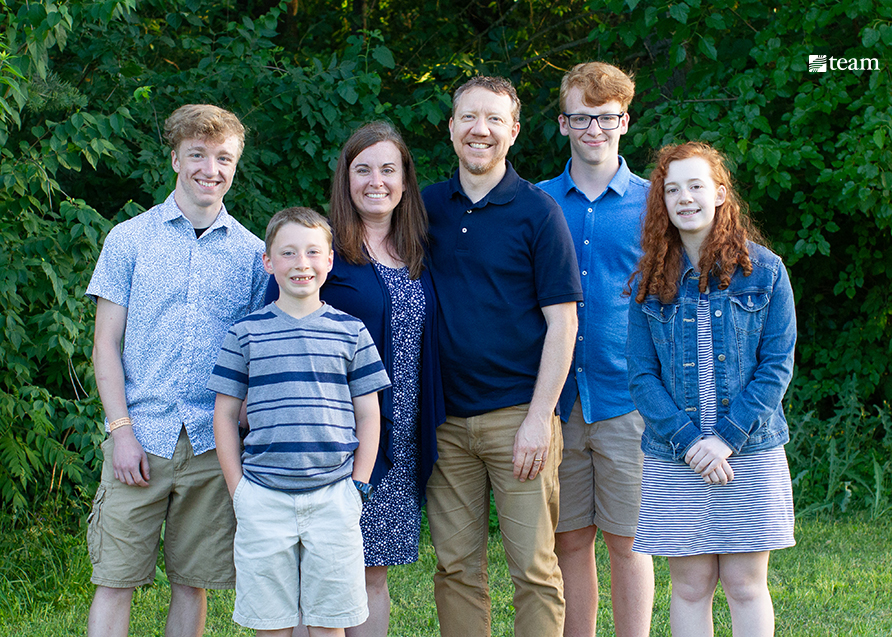
Becoming a Missionary
I Could Have Killed a Ministry Moment — Without Cross-Cultural Training
February 12, 2021
by Anonymous Missionary

Without cross-cultural training, it’s easy for a new missionary to make costly mistakes. Mine could have been losing a friendship over a bowl of couscous.
When my husband and I sensed God calling us to serve overseas, we weren’t seminary educated. We had traveled to over 15 countries together, but that was just enough for us to know we weren’t equipped to sustain a successful career as missionaries.
Then we heard about Launch, a two-year, intensive internship in southern France. While living amongst North African immigrants, interns are trained in three areas:
- How to be a living testimony in a community where only 1 percent of the population considers themselves Christian.
- Cross-cultural observation and assimilation skills, as well as French language learning.
- Discovering their personal niche, finding ways to use their education, talents, skills, and experience for the Kingdom.
We couldn’t see how our education and skill sets could be used in traditional missionary service. This internship was exactly what we needed!
Exchanging Couscous for Cupcakes
After a year into our Launch internship, we had learned enough French to have actual conversations. It was becoming easier to spot North Africans as we learned about their cultural practices, as well as those of the French. Things were starting to click for us.
I was discovering that being a mom was a large part of my niche and that the school yard is a beautiful place to practice being a living testimony to our neighbors. Relationships really began to grow when the other moms realized that I was pregnant with our third child.
One of my North African friends started to take care of me, bringing me all kinds of treats to help with nausea.
In our cross-cultural training, we had covered the principle of reciprocity, giving and receiving equally, in North African culture. Therefore, in order to properly say thank you, I knew I needed to give something back of equal value to keep the balance of the friendship in check.
One day, my friend called, saying she was in front of our apartment. When I arrived downstairs, I found my friend smiling and holding a huge, piping hot dish of couscous with lots of meat and veggies.
I knew I had to up my game.
I found a recipe for cupcakes and borrowed a hand mixer to make buttercream frosting. I artfully arranged all the cupcakes in her dish, a beautiful presentation that served two purposes: first to never return a dish empty and second to share a piece of our American culture.
I proudly returned her dish, stuffed full of yummy cupcake confection.
To my surprise, she laughed out loud and scolded me for putting cupcakes in a couscous dish. Apparently, this was a major insult!
One should never mix cupcakes and couscous!
When Confrontation Means Progress
This story is a big deal.
For one, it shows that we had built enough trust for her to share a piece of her culture with us. But secondly, without knowing the cultural value of reciprocity, this relationship probably would have ended after her first gift because I wouldn’t have known how to thank her in a culturally-appropriate manner that made sense to her.

My thoughtful gift of cupcakes was, culturally, a major insult. But the fact that my friend was willing to call me on it meant we’d made real progress in our relationship.
Even though I still made a mistake, my cultural understanding went deep enough to know that a gift in return was required. And because we had built up trust, she could correct my mistake in a playful way, knowing that my heart was in the right place.
Now, I truly consider her a friend. She even brings her daughter to the children’s story hour our team puts on, using our gift of the English language as a way to meet neighbors.
In the spring, I sent her a message wishing her a Good Eid, because I now know that it’s an important Muslim holiday. Later that day, we saw her and one of her friends in the park. She invited us over and gave us some freshly made Algerian crepes (not to be confused with French crepes).
When I asked if these were for the Eid, her friend’s jaw dropped, and she made a comment about us knowing about their holiday and traditions. My friend immediately stood up for us, explaining we always know and are always accepting and kind.
Becoming Known in Our Community
Through interactions like this, we are becoming established in this community. Our friends know we love Jesus. We talk about religious things all the time, and we pray for them “in the name of my God, Jesus.”
By continuing to prove ourselves trustworthy, we are representing Jesus as trustworthy. We’re correcting previously held ideas that Christians are all crusaders and or that all Americans hate and fear Muslims.

If we had just counted on our love and passion to make inroads in France, we’d likely have already burnt out and quit. Instead, God gave us the wisdom to prepare.
If we had just shown up in France, hearts full of love for God and eager to make big changes for His Kingdom, we would likely already be back Stateside, burnt out and disappointed.
Instead, God gave us the wisdom to slow down and discover how we could effectively work on His behalf, using the talents, skills and education He blessed us with.
God cut us out for this work, but we were rough and unpolished. Launch took our raw edges, sanded out the splinters and prepared us for God to add the varnish, readying us to begin our work.
Don’t get me wrong; the biggest takeaway I have from Launch is that we will always be a little unfinished. In this work, we will always need to be learning, growing and adapting.
However, because of my time as a Launch intern, I now feel equipped to shine in my community as a living testimony, sharing how Jesus is constantly making me new and turning my failures into His victories.
Even when I mix the cupcakes with the couscous!
Related articles

